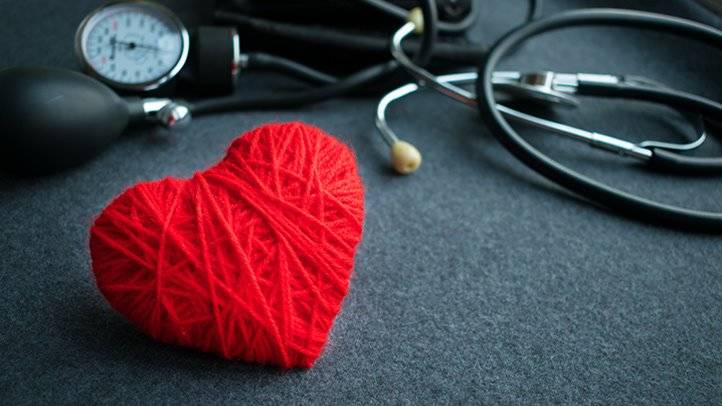Hypertension, commonly known as high blood pressure, is a condition that affects millions of people worldwide and is a significant risk factor for cardiovascular diseases, including heart attack, stroke, and heart failure. Understanding the different stages of hypertension is crucial for early detection, prevention, and management. This article delves into the concepts of prehypertension and stage 1 hypertension, highlighting their definitions, causes, risk factors, symptoms, and treatment options.
Defining Prehypertension And Stage 1 Hypertension
1. Prehypertension
Prehypertension, also known as elevated blood pressure, is a condition where blood pressure readings are higher than normal but not yet in the hypertensive range. According to the American Heart Association (AHA) and the American College of Cardiology (ACC), prehypertension is defined as:
SEE ALSO: What Makes My Blood Pressure Go Up?
Systolic pressure: 120-129 mm Hg
Diastolic pressure: less than 80 mm Hg
Prehypertension serves as a warning sign, indicating an increased risk of developing hypertension and cardiovascular diseases in the future.
It often results from lifestyle factors such as poor diet, lack of physical activity, and stress.
2. Stage 1 Hypertension
Stage 1 hypertension is the initial stage of high blood pressure and is characterized by:
Systolic pressure: 130-139 mm Hg
Diastolic pressure: 80-89 mm Hg
At this stage, the risk of cardiovascular events begins to increase, and medical intervention may be necessary to prevent the progression to more severe stages of hypertension.
Causes And Risk Factors
The exact cause of hypertension is often multifactorial, involving a combination of genetic, environmental, and lifestyle factors. Some common causes and risk factors include:
Genetics: A family history of hypertension increases the risk.
Age: Blood pressure tends to increase with age.
Obesity: Excess body weight can lead to increased blood pressure.
Diet: High salt intake, low potassium intake, and poor dietary choices contribute to hypertension.
Physical Inactivity: Lack of exercise is a significant risk factor.
Alcohol and Tobacco Use: Both can raise blood pressure levels.
Stress: Chronic stress can contribute to elevated blood pressure.
Medical Conditions: Conditions like diabetes, kidney disease, and sleep apnea can increase the risk of hypertension.
Symptoms of Prehypertension And Stage 1 Hypertension
Hypertension is often referred to as the “silent killer” because it typically presents with no symptoms until it reaches an advanced stage. However, some individuals may experience:
Headaches: Particularly in the mornings.
Dizziness: Occasional lightheadedness.
Shortness of Breath: Especially during physical activity.
Nosebleeds: More frequent than usual.
Chest Pain: Rare but possible in severe cases.
Diagnosis
Diagnosing hypertension involves measuring blood pressure using a sphygmomanometer or an automated blood pressure monitor. It is important to take multiple readings at different times to ensure accuracy. If elevated readings persist, a diagnosis of prehypertension or stage 1 hypertension may be made.
Treatment And Management
Lifestyle Modifications
For individuals with prehypertension, lifestyle changes are often the first line of defense. These include:
Dietary Changes: Adopting a heart-healthy diet such as the DASH (Dietary Approaches to Stop Hypertension) diet, which emphasizes fruits, vegetables, whole grains, and lean proteins.
Reducing Salt Intake: Limiting sodium intake to less than 2,300 milligrams per day, or 1,500 milligrams for those at higher risk.
Regular Exercise: Engaging in at least 150 minutes of moderate-intensity aerobic activity per week.
Weight Loss: Losing excess weight can significantly lower blood pressure.
Limiting Alcohol: Reducing alcohol consumption to moderate levels.
Quitting Smoking: Smoking cessation is crucial for overall cardiovascular health.
Stress Management: Incorporating stress-reducing techniques such as yoga, meditation, and deep breathing exercises.
Medications
In cases of stage 1 hypertension, medication may be necessary to control blood pressure. Commonly prescribed antihypertensive medications include:
Diuretics: Help the kidneys remove excess sodium and water.
ACE Inhibitors: Relax blood vessels by blocking the formation of a natural chemical that narrows blood vessels.
Angiotensin II Receptor Blockers (ARBs): Help relax blood vessels by blocking the action of a natural chemical that narrows blood vessels.
Calcium Channel Blockers: Prevent calcium from entering the cells of the heart and blood vessel walls, resulting in lower blood pressure.
Beta-Blockers: Reduce the heart rate and the heart’s output of blood.
Monitoring and Follow-Up
Regular monitoring of blood pressure is essential for individuals with prehypertension and stage 1 hypertension. This can be done through:
Home Monitoring: Using a home blood pressure monitor to track readings.
Regular Check-Ups: Visiting a healthcare provider for periodic assessments.
Keeping a Log: Recording blood pressure readings and any symptoms.
Complications of Uncontrolled Hypertension
If left untreated, both prehypertension and stage 1 hypertension can progress to more severe stages, leading to serious health complications, including:
Heart Attack: Due to damage to the arteries supplying blood to the heart.
Stroke: Caused by reduced blood flow to the brain.
Heart Failure: Resulting from the heart’s inability to pump blood effectively.
Kidney Damage: Leading to chronic kidney disease or kidney failure.
Vision Loss: Due to damage to the blood vessels in the eyes.
Aneurysm: Formation of a bulge in a blood vessel wall.
Prevention
Preventing hypertension involves adopting a healthy lifestyle and addressing modifiable risk factors. Key preventive measures include:
Maintaining a Healthy Weight: Staying within a healthy weight range.
Healthy Eating: Following a balanced diet rich in nutrients.
Regular Physical Activity: Engaging in regular exercise.
Limiting Alcohol and Avoiding Tobacco: Reducing alcohol intake and quitting smoking.
Managing Stress: Utilizing stress-relief techniques.
Regular Screening: Monitoring blood pressure regularly, especially if there is a family history of hypertension.
Conclusion
Prehypertension and stage 1 hypertension are early indicators of cardiovascular risk, and addressing them promptly through lifestyle changes and, if necessary, medication can prevent the progression to more severe stages. By understanding the causes, risk factors, symptoms, and treatment options, individuals can take proactive steps to manage their blood pressure and reduce their risk of cardiovascular diseases.

